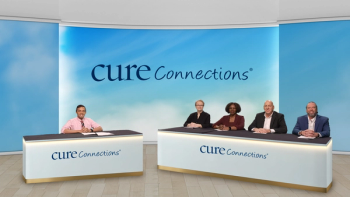
Future Perspectives in Multiple Myeloma
Panelists highlight advances in myeloma treatment, focusing on innovative T cell therapies like CAR T and T cell engagers, along with potent new CELMoD drugs, all offering more targeted and effective options for patients.
Episodes in this series

Looking ahead, one of the most promising advances in myeloma treatment is T cell-directed therapy. Myeloma is influenced not only by the cancerous plasma cells but also by the surrounding immune environment. T cells, a key part of the immune system, can be harnessed to better fight the disease. One innovative approach involves removing a patient’s T cells, engineering them in a lab to specifically target myeloma cells, and then reinfusing them back into the patient. These engineered cells, known as CAR T cells, act like guided missiles attacking the cancer. Due to the complexity and potential side effects, CAR T therapy is administered at specialized centers with close monitoring for several weeks after treatment. Initially approved for patients with advanced, relapsed myeloma, it is now being studied and used in earlier stages of the disease.
Another exciting development is T cell engager therapy, which activates a patient’s existing T cells inside the body instead of removing them. This approach uses antibodies that simultaneously attach to both myeloma cells and T cells, bringing them together so the T cells can kill the cancer cells. These drugs received FDA approval recently but are still being introduced into broader use due to unique side effects and the need for specialist knowledge. Ongoing clinical trials are exploring their use in newly diagnosed and early relapse patients. Generally, the trend in myeloma treatment is to start with new, effective drugs in advanced stages and then move them into earlier treatment phases as their safety and benefits become clearer.
In addition to T cell therapies, newer drugs called CELMoDs are emerging. These are designed to be significantly more potent than older immunomodulatory drugs like Revlimid, potentially offering greater effectiveness with fewer side effects. Together, these advances represent a hopeful future for myeloma patients, offering more powerful and targeted treatment options that continue to improve outcomes.


